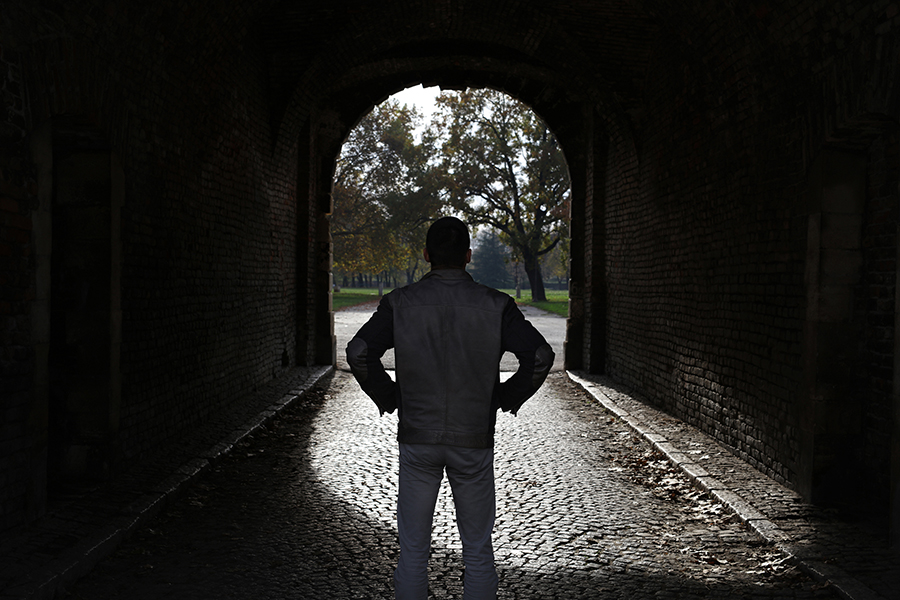Life on the Other Side: Breaking the Cycle of Addiction & Recovering a Career

Photo Credit: Getty Images
When addiction is part of your daily life, breaking the cycle can seem overwhelmingly difficult. But, ask any person who has faced an addiction and they will tell you: Life on the other side is worth every step of the journey.
Just ask Kristen Sowada, a healthcare professional who spent 128 days in treatment with Caron Treatment Centers and has remained sober for more than six years now. And she was able to resume her career in healthcare and go on to achieve her goals of attending graduate school, getting married and starting a family.
“I have a new perspective on life—and that’s simple—nothing bad has happened to me since I’ve been sober,” she says.
Her journey was not always a clear path but, she notes, walking through the challenges sober has made her an even stronger person—personally and professionally.
“Through my time at Caron, I learned the only way to get through the stressors of life and the pain that comes along with it, is to face it head-on, and to only way to do that is by being sober.”
Here, Sowada shares what life is like on the other side of addiction.
What tools or strategies did you find most helpful during your first year of recovery?
The tools that you need aren’t going to work until you claim your own accountability. At Caron, they fostered a place where people cared about me but also held me accountable for my actions. Plus, I learned treatment isn’t just a quick in-and-out process, it takes time to recover. I took my time at Caron so I could truly understand the importance of professional accountability and gained the tools necessary to return to my career in the healthcare field.
Attending Caron’s health professional program allowed me to take ownership of my recovery and empowered me to do the next right thing. For me, I took advantage of monitoring programs and support groups. I knew getting drug tested was useful in holding me accountable, as well as proving to my profession that I am serious about my recovery-I will go to any lengths to be able to return to work. I was monitored for five years. Now, I do it voluntarily in efforts to prove myself as a nurse practitioner who is actively in recovery. I also continue to be an active part of my community and visit Caron to share my story with current patients seeking treatment.
How do you deal with situations that may challenge your sobriety?
My life after treatment continues to have its share of challenges. After I left Caron, my father was diagnosed with lung cancer. Before treatment, his diagnosis would have been a great excuse for me to drink or use a substance to help cope with my pain, but instead, I reflected on and valued the fact that I was able to be there and be present for my dad during a difficult time.
Through my experience at Caron, I knew that being present for my family was most important and I knew the only way I could truly do that was by staying sober.
Did you worry about the stigma of treatment when you returned to work?
It was a blessing to return to the company that had previously fired me. Each and every day I drive to work I am so happy and so grateful that I have the opportunity to work as a nurse. Being able to prove to my employer that I was reliable was great but I knew I had to put in the time. I’ve been back three years now but I still feel grateful to have a second chance to prove myself. I could have lost it all if I didn’t get the help I needed.
How did your time at Caron help ease you back into work?
One of my original reasons for attending Caron was to have a tailored program like the healthcare professional program. The treatment team knew the challenges of working in the healthcare professional program and was familiar with my state’s monitoring programs and Board’s requirements for me to return to work. They knew I needed to undergo monitoring to have my career back and worked closely on a discharge plan to make sure I was a monitored. They went above and beyond to transition me after treatment in order to set me up for success.
How did your time at Caron help give you the tools you needed to aid your long-term recovery?
While at Caron, I attended set me up with groups that were specific to my needs, like a grief counselor who helped me understand my grief and loss issues, in order to process triggers to my addiction. There were times I’d feel angry about something—like, maybe I broke a rule or something—and Caron would let me respond with anger, or however I truly felt. They’d just let me be mad about it and I would eventually stop myself and say ‘what am I doing?’ Caron was a safe space I could learn how to process my emotions and to move forward with my recovery. Getting sober is not easy, and often not pretty, but it is the single best investment anyone could make to their future. I am glad I learned this valuable lesson through attending Caron.
What is your advice for someone in their first year of recovery?
In your first year, be humble to the fact your life choices might not have always been the best—you need to trust in and listen to those who went before you. Join a gym, stop in a church program—recovery is all about relationships and connecting with people who make you stronger. We need more people to speak up and celebrate the people who are doing well to show that it is possible.
Life after addiction is possible. If you, or someone you know, is struggling with substance abuse take the next step toward recovery, visit caron.org to learn more.
This is a paid partnership between Caron Treatment Centers and Philadelphia Magazine


